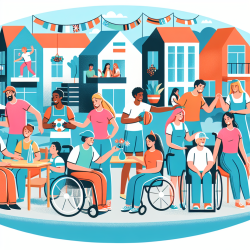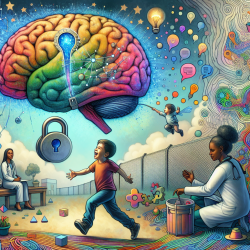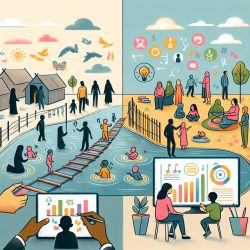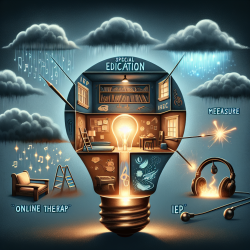For practitioners working with youth with disabilities, understanding the impact of Residential Immersive Life Skills (RILS) programs can be a game-changer. These programs offer a unique opportunity for young people to develop essential life skills in a supportive and immersive environment. The recent study titled "Residential immersive life skills programs for youth with disabilities: a case study of youth developmental trajectories of personal growth and caregiver perspectives" sheds light on how these programs can foster significant personal growth.
Understanding RILS Programs
RILS programs are designed to provide youth with disabilities an enriched environment where they can acquire psychosocial competencies and interpersonal skills crucial for managing their lives. These programs often take place in settings that mimic real-world living situations, such as college residences, allowing participants to experience living away from home while receiving support from a multidisciplinary healthcare team.
The Study: Key Findings
The study followed four youth participants and their caregivers through their journey in a RILS program. Using semi-structured interviews conducted before, one month after, and three to four months post-program, researchers were able to track the developmental trajectories of each participant.
- Personal Growth: All participants reported acquiring new life skills and engaging in new behaviors. This growth was characterized by enhanced self-determination, self-efficacy, and self-advocacy.
- Caregiver Perspectives: The study highlighted the importance of caregiver support in facilitating the consolidation of these new skills. Caregivers who were ready to adapt their parenting roles saw more significant positive changes in their children.
- Unique Trajectories: Each participant experienced unique developmental trajectories influenced by their individual circumstances and the level of support they received from caregivers.
Implementing Insights into Practice
As practitioners, there are several ways you can leverage these findings to enhance your practice:
- Promote RILS Program Participation: Encourage families to consider enrolling their children in RILS programs as a means to foster independence and personal growth.
- Support Caregiver Education: Work with caregivers to help them understand the importance of their role in supporting their child's development post-program. Offer workshops or resources that focus on transitioning from a 'manager' role to a 'consultant' role.
- Create Follow-Up Plans: Develop follow-up plans that include setting goals for continued skill development and strategies for overcoming potential barriers at home.
- Encourage Peer Support: Facilitate connections between families who have participated in RILS programs to share experiences and strategies for supporting ongoing growth.
The Role of Caregivers
The study underscores the critical role caregivers play in the success of RILS programs. Caregivers who embraced changes and provided opportunities for their children to apply new skills at home saw more positive outcomes. Practitioners should work closely with families to ensure they are prepared to support their child's journey towards greater independence.
Conclusion
The insights gained from this study highlight the transformative potential of RILS programs for youth with disabilities. By fostering an environment that promotes independence and personal growth, these programs can significantly alter a young person's developmental trajectory towards adult roles. Practitioners have an essential role in supporting both youth and caregivers through this process.
To read the original research paper, please follow this link: Residential immersive life skills programs for youth with disabilities: a case study of youth developmental trajectories of personal growth and caregiver perspectives.










